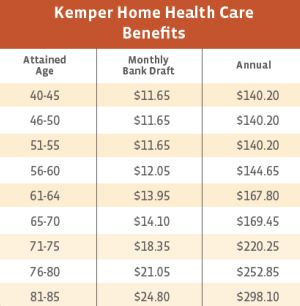Each nation's having various policies and concerns has resulted in a variety of differences existing between the systems. That said, each country supplies public health care to all UK permanent homeowners that is free at the point of usage, being spent for from general taxation. In addition, each also has a private sector which is significantly smaller sized than its public equivalent, with arrangement of private health care gotten by ways of personal health insurance coverage, moneyed as part of an employer moneyed healthcare scheme or paid straight by the customer, though provision can be limited for those with conditions such as HIV/HELP.
These commissioning bodies do not supply services themselves straight, however acquire these from NHS Trusts and Foundation Trusts, along with private, voluntary, and social business sector service providers. Health care in Australia is supplied by both personal and government institutions. Medicare is the publicly financed universal health care endeavor in Australia.
Medicare is moneyed partially by a 2% earnings tax levy (with exceptions for low-income earners), however mainly out of general revenue. An extra levy of 1% is troubled high-income earners without personal health insurance. Along with Medicare, there is a separate Pharmaceutical Benefits Scheme that substantially subsidises a series of prescription medications.
Building upon less structured structures, in 1963 the existence of a single-payer health care system in Spain was established by the Spanish federal government. The system was sustained by contributions from employees, and covered them and their dependants. The universality of the system was established later in 1986. At the same time, management of public healthcare was delegated to the different autonomous neighborhoods in the nation.
Additionally, in parallel to the single-payer healthcare system there are private insurers, which supply protection for some personal physicians and hospitals. Employers will in some cases use private medical insurance as a benefit, with 14. 8% of the Spanish population being covered under personal medical insurance in 2013 - what purpose does a community health center serve in preventive and primary care services?. In 2000, the Spanish healthcare system was rated by the World Health Company as the 7th finest worldwide.
Medicare in the United States is a public health care system, but is limited to persons over the age of 65, individuals under 65 who have particular disabilities, and anybody with end-stage renal disease. A variety of propositions have actually been made for a universal single-payer healthcare system in the United States, among them the United States National Health Care Act (popularly referred to as H.R.


On July 18, 2018, it was announced that over 60 House Democrats would be forming a Medicare for All Caucus. Advocates argue that preventive health care expenditures can Mental Health Delray conserve numerous hundreds of billions of dollars annually because publicly funded universal healthcare would benefit employers and consumers, that companies would take advantage of a larger pool of possible consumers and that companies would likely pay less, would be spared administrative expenses, and inequities in between companies would be decreased.
A Biased View of What Is Health Care
At over 27 million, the number of people without health insurance coverage protection in the United States is among the main issues raised by advocates of health care reform. Lack of health insurance coverage is related to increased mortality about sixty thousand preventable deaths each year, depending on the study. A research study done at Harvard Medical School with Cambridge Health Alliance showed that almost 45,000 yearly deaths are related to an absence of patient medical insurance.
Backers of single-payer or Medicare for All note that minorities and the bad, as well as rural residents in general, are less able to manage personal medical insurance, which those who can must pay high deductibles and co-payments that threaten households with financial mess up. Advocates likewise argue that single-payer could gain from a more fluid economy with increasing financial growth, aggregate demand, corporate earnings, and lifestyle.
Any national system would be paid for in part through taxes changing insurance premiums, however supporters likewise think cost savings would be realized through preventive care and the elimination of insurer overhead and hospital billing expenses. A 2008 analysis of a single-payer bill by Physicians for a National Health Program approximated the instant cost savings at $350 billion each year.
Opponents argue that access to health care reduces under single-payer systems, and that the total quality of care suffers. Opponents also declare that single-payer systems trigger lacks of basic doctors and professionals and reduce access to medical technology. Government is significantly involved in U.S. healthcare spending, paying about 45% of the $2.
However, research studies have actually shown that the openly administered share of health spending in the U.S. might be closer to 60% since 2002. According to Princeton University health economist Uwe Reinhardt, U.S. Medicare, Medicaid, and State Children's Health Insurance coverage Program (SCHIP) represent "kinds of 'social insurance coverage' coupled with a mainly private health-care shipment system" rather than kinds of "socialized medication." In contrast, he explains the Veterans Administration healthcare system as a pure type of socialized medication because it is "owned, run and financed by federal government." In a peer-reviewed paper released in the, scientists of the RAND Corporation reported that the quality of care received by Veterans Administration patients scored significantly greater total than did equivalent metrics for clients presently utilizing United States Medicare.
The act would develop a universal single-payer health care system in the United States, the rough equivalent of Canada's Medicare, the United Kingdom's National Substance Abuse Treatment Health Service, and Taiwan's Bureau http://finneupw902.lucialpiazzale.com/some-of-why-doesn-t-the-united-states-have-universal-health-care of National Medical Insurance, to name a few examples. The expense was initially introduced in 2003 and has actually been reintroduced in each Congress because.
676 was anticipated to be debated and voted upon by the Home in September 2009, however was never ever discussed. In the wake of Bernie Sanders' 2016 governmental campaign, in which a push for universal health care included plainly, single-payer proposals acquired traction. Conyers reintroduced his costs in the House of Representatives in January 2017.
The smart Trick of Which Of The Following Are Characteristics Of The Medical Care Determinants Of Health? That Nobody is Discussing
In September of the very same year, Sanders himself, together with 16 co-sponsors, presented a Medicare-for-all expense in the Senate (S. 1804). An analysis of a Mercatus Center study of the 2017 proposal by economist Jeffrey Sachs discovered that "it truly and straightforwardly concludes that M4A would offer more healthcare protection at lower expense than the status quo, projecting a net decrease in national health expenses of roughly $2 trillion over a 10-year duration (2022-2031), while also making it possible for increased healthcare protection." The Congressional Budget Plan Office and related federal government firms scored the expense of a single-payer healthcare system a number of times since 1991.
A July 1993 scoring also resulted in favorable results, with the CBO mentioning that," [a] s the program was phased in, the administrative savings from changing to a single-payer system would balance out much of the increased demand for health care services. Later, the cap on the development of the national health budget plan would hold the rate of development of spending below the standard." The CBO likewise scored Sen.
The research study examined both direct expenses charged by insurance providers for profit, administration and marketing but also the indirect concern placed on health care companies like hospitals, nursing homes and physicians for costs they sustained in working with private health insurers consisting of contract settlements, monetary and medical record-keeping (variable and distinctive for each payer).